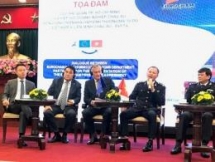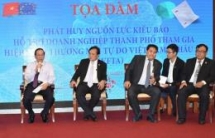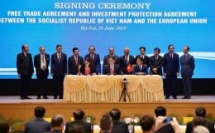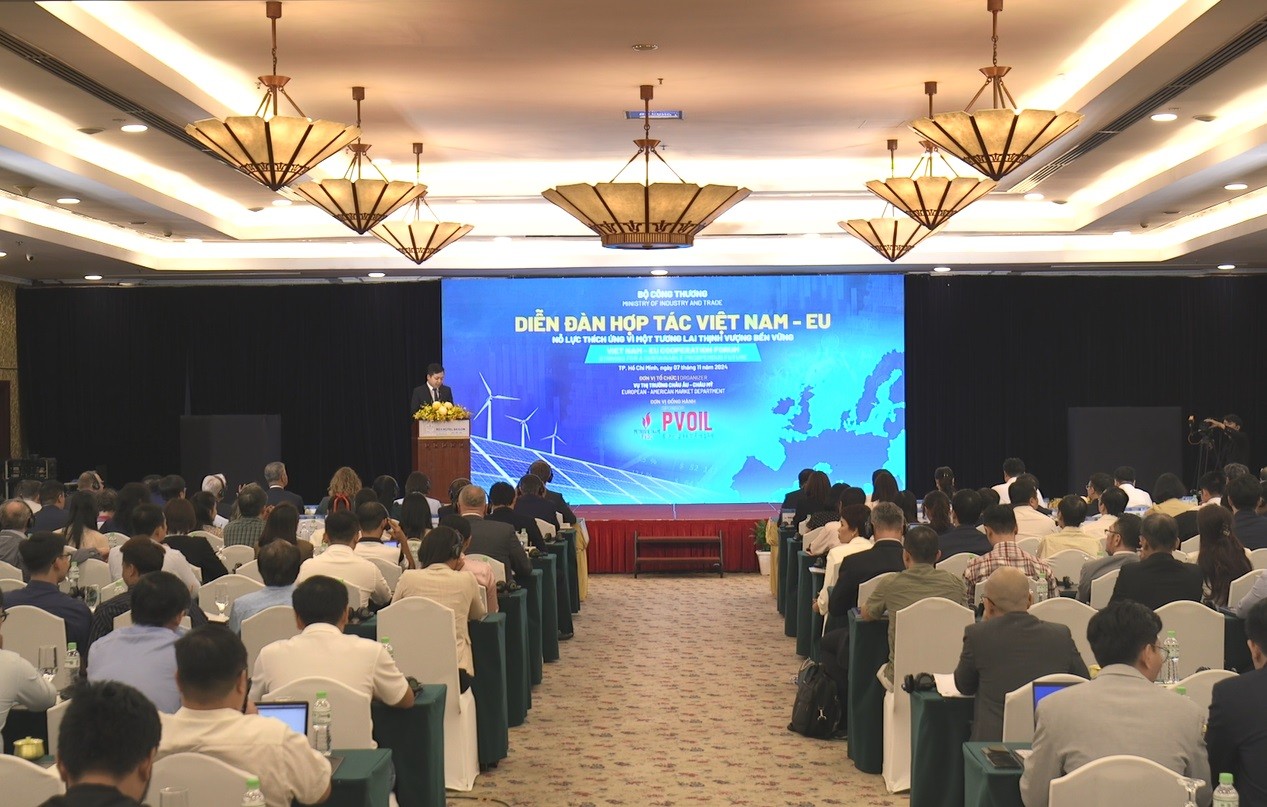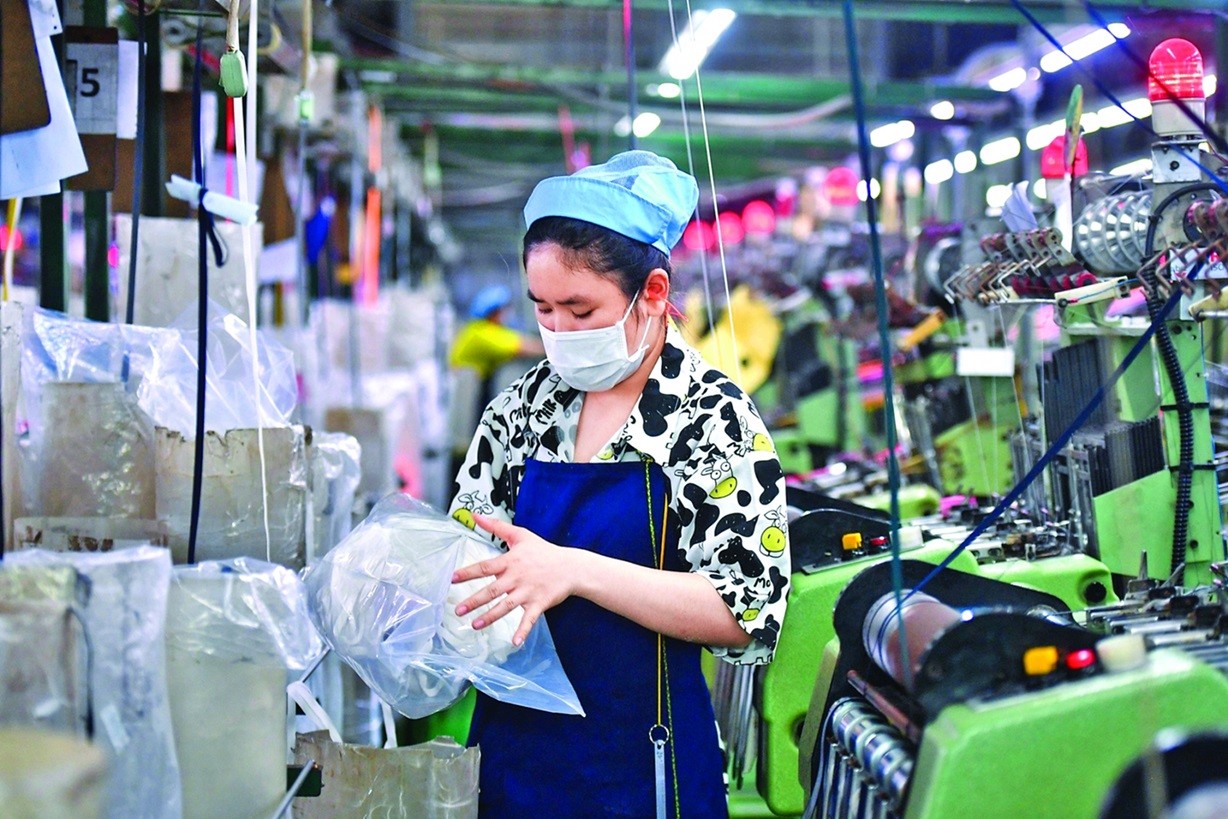EVFTA, EVIPA get green light in European Parliament Committee on International Trade
| HCM City, EuroCham talk EVFTA implementation | |
| HCM City calls for OVs’ support in helping domestic firms to speed up EVFTA approval | |
| EVFTA-IPA signed, historical significance to both sides |
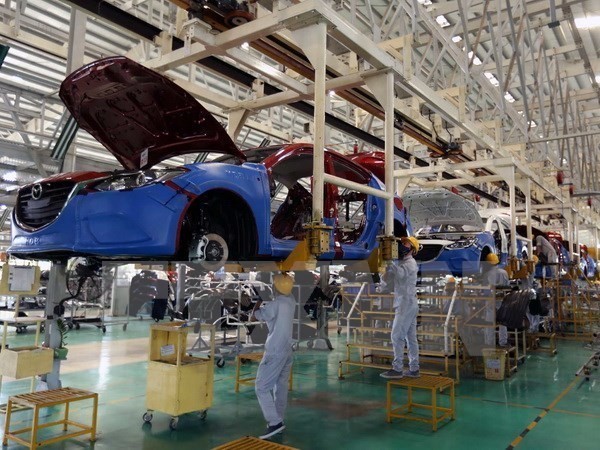 |
| Illustrative image (Photo: VNA) |
The committee gave its consent to the free trade agreement by 29 votes, six votes against and five abstentions and recommends that EP Plenary should do the same. The agreement will remove virtually all tariffs between the two parties in ten years. It will protect emblematic European products, and allow Europe to access the Vietnamese public procurement market.
According to several studies, the EVFTA and EVIPA are expected to help Vietnam’s gross domestic product (GDP) grow by 4.6 percent and exports to the EU up 42.7 percent by 2025.
The European Commission estimated that the EU’s GDP will increase by 29.5 billion USD and exports to Vietnam pick up 29 percent by 2035.
65% of EU exports to Vietnam will be immediately duty free, with the rest - including motorcycles, cars, pharmaceuticals, chemicals, wines, chicken and pork - gradually liberalised over ten years. 71% of Vietnamese exports to the EU will be duty free on day one, with the rest catching up in seven years. Duty-free Vietnamese exports of sensitive agricultural products, such as rice, garlic or eggs, will be limited.
Non-tariff barriers will be eliminated in the automotive sector, export and import licensing, and customs procedures. Vietnam accepted the “Made in EU” marking, beyond national markings of origin, for non-agricultural products;
169 emblematic EU products such as Parmigiano Reggiano cheese, Champagne, or Rioja wine, will enjoy protection in Vietnam, as will 39 Vietnamese products in the EU.
EU companies will have improved access to business, environmental, postal and courier, banking, insurance and maritime transport services in Vietnam.
EU firms will be able to bid for contracts with Vietnamese ministries, state-owned enterprises, as well as with Hanoi and Ho Chi Minh City.
Rapporteur Geert Bourgeois (ECR, BE) said: “With the consent to this trade deal with Vietnam, the trade committee is giving a positive signal to the ASEAN region and the rest of the world at a time when trade tensions are rising. Besides its geopolitical and economic importance, I am convinced that this agreement will accelerate the reform process within Vietnam. The ratification will strengthen further progress on labour and environmental standards and the respect for human rights.”
With support from INTA, the documents on approving EVFTA and EVIPA will be submitted to the EP for consideration in the near future.
| Vietnam is the EU's second largest trading partner in the Association of Southeast Asian Nations (ASEAN) after Singapore, with trade in goods worth €47.6 billion a year and €3.6 billion when it comes to services. EU exports to the country grow by 5-7 percent annually, yet the EU’s trade deficit with Vietnam was €27 billion in 2018. The main EU imports from Vietnam include telecommunications equipment, clothing and food products. The EU mainly exports goods such as machinery and transport equipment, chemicals and agricultural products to Vietnam. |

